|
Garbo Books & Booklets
* Bibliography 1980-1989 * |
| |
Greta Garbo (Hungary 1980)

Author: Nemes Károly
Publisher: Magyar Filmtudományi Intézet és Filmarchívum-Múzasák, Budapest
More Info: 99 Pages,
The book was re-released in 1982, 1984, 1985 and 1986
|
| |
Marlene Dietrich / Greta Garbo (Japan 1980)

Author: ??
Publisher: ??
|
| |
|
Garbo ( USA 1980)
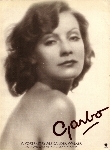 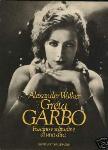
Author: Alexander Walker
Publisher: Macmillian Publishing Co., New York
More info: 168 Pages |
| |
|
Greta Garbo – Ein Portrait (Germany 1981)
 
Author: Alexander Walker
Publisher: Christian Verlag GmbH, München
Orginal book: Garbo by Alexander Walker, USA 1980
More info: 168 Pages |
| |
|
Ève Ruggieri Raconte: Eva Peron, Maria Callas, Flora Tristan,
Mata
Hari, Greta Garbo (France 1981)
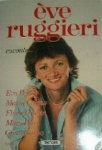
Author: Ève Ruggieri Roconte
Publisher: éditions Mengès
More Info: 335 pages
|
| |
Movila (Spain 1981)

Author: Garson Kanin
Publisher: Bruguera, Barcelona
Orginal book: Moviola, USA 1979
More Info: 911 pages |
| |
|
El hijo de Greta Garbo (Spain 1982)
 
Author: Francisco Umbral
Publisher: Ediciones Destino, S.L., Barcelona
More Info: 191 pages |
| |
|
Grand Illusions (USA 1983)
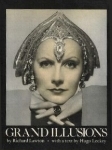
Author: Richard Lawton
Publisher: Harmony Books, New York
More Info: The book was re-released in 1988 |
| |
Greta Garbo – A Portrait (China 1984)
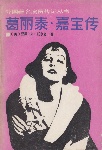
Author: Alexander Walker
Publisher: ?, China
Orginal book: Garbo by Alexander Walker, USA 1980
More info: 156 Pages |
| |
|
Divine Garbo (France 1985)

Author: Charles Affron
More Info: 175 pages |
| |
|
Garbo (France 1985)

Author: Patrick Brion
Publisher: Paris, Chêne
More Info: 217 pages, Collection Cinéma de toujours |
| |
|
Greta Garbo: Portraits 1920-1951 (Germany 1985)
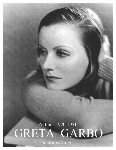
Author: Klaus-Jürgen Sembach
Publisher: Schirmer/Mosel, München
More Info: 144 pages with B&W Photos |
| |
|
Greta Garbo: Portraits 1920-1951 (USA 1985)
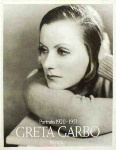
Author: Klaus-Jürgen Sembach
Publisher: Rizzoli, New York
Orginal book: Greta Garbo: Portraits 1920-1951, Germany 1985 |
| |
|
Greta Garbo Paper Dolls in Full Color (England 1985)

Author: Tom Tierney
Publisher: Rizzoli, New York
More Info: 32 pages |
| |
|
Greta Garbo - Die Göttliche (Germany 1986)
  
Author: Robert Payne
Publisher: Heyne, München
More Info: 316 Pages
Orginal book: The great Garbo, USA 1976 |
| |
Garbo Filmen Vi Aldrig Fick Se (Sweden 1986)

Author: Eugen Semitjov
Publisher: Stockholm, Bokförlaget Fabel
|
| |
Greta Garbo (Hungary 1986)

Author: Csengery Judit
Publisher: Zenemükiadó Vállalat
More Info: 316 Pages
Orginal book: Greta Garbo, Hungary 1986
|
| |
Den Gåtfulia Garbo (Sweden 1986)

Author: Anne Taraba
Publisher: Stockholm, Bokförlaget Fabel
|
| |
LAS MIL CARAS DR GRETA GARBO (Spain 1987)

Author: EDNA EPSA
Publisher: Fotogramas, Barcelona
More Info: 64 pages |
| |
The Man Who loved Miss Greta Garbo
- a novel by Alec Ross (USA 1987)
Author: Alec Ross
Publisher: Geneva Book, Carlton Press
Alternative Title: The absolute fascination with Greta & the Films in which she starred
More Info:
The book is about a group of fans of Greta Garbo who try to stop a TV station show a
shortened
and cut by commercials version of Garbo's masterpiece Camille.
|
| |
The Great Garbo (China 1987)

Author: Robert Payne
Publisher: ?, China
More Info: 183 Pages
Orginal book: The Great Garbo, USA 1976
|
| |
Mythen des Alltags (Germany 1988)

Author: Roland Barthes
Publisher: Suhrkamp, München
More Info: 111 Pages
Orginal book: Mythologies – by Roland Barthes, France 1957 |
| |
Greta Garbo (Czechoslovakia 1988)

Author: Boris Jachnin
Publisher: Filmovy Ustav, Prague
More Info: 35 pages
|
| |
The Man Who Shot Garbo:
The Hollywood Photographs of Clarence Sinclair Bull (USA 1989)
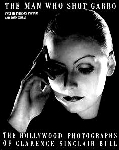
Author: Terrence Pepper and John Kobal
Publisher: Simon & Schuster, New York
More Info: 240 pages
|
| |
Clarence Sinclair Bull.
Star-Photograph bei MGM (Germany 1989)

Author: Terrence Pepper and John Kobal
Publisher: Schirmer/Mosel, München
|
| |
Joyless Streets: Women and Melodramatic
Representation in Weimar Germany (USA 1989)

Author: Patrice Petro
Publisher: Princeton Univ Pr
Patrice Petro challenges the conventional assessment of German film history, which sees classical films as responding solely to male anxieties and fears. Exploring the address made to women in melodramatic films and in popular illustrated magazines, she shows how Weimar Germany had a commercially viable female audience, fascinated with looking at images that called traditional representations of gender into question. Interdisciplinary in her approach, Petro interweaves archival research with recent theoretical debates to offer not merely another view of the Weimar cinema but also another way of looking at Weimar film culture. Women's modernity, she suggests, was not the same as men's modernism, and the image of the city street in film and photojournalism reveals how women responded differently from men to the political, economic, and psychic upheaval of their times.
|
|
| |